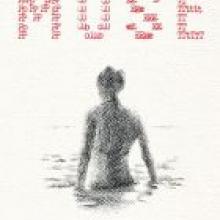
There would scarcely be an individual better suited to creating Muse than Jonathan Galassi, president and publisher of a main player in the publishing world: Farrar, Straus and Giroux.
Wry, perceptive, ironic and endlessly engaging, Muse is Galassi's extended comment on the intrigues, back-stabbing, competitiveness and trials great and small within the New York publishing environs.
With such inside knowledge, Galassi's debut novel does not veer away from detailing characters and events that closely resemble those of his real-life experiences.
Purcell and Stern (P&S) and Impetus Editions are two reputable companies, considered the last of the independent ''gentlemen'' publishers.
They are led by the feisty and pompous womaniser Howard Stern with his ''Hun-like'' outlook, and the less literary, aristocratic Sterling Wainwright respectively, who are bitter (but marginally polite) rivals as they compete for glittering trophy authors.
They are haunted in life by the Ones that Got Away.
The greatest trophy of all, whom they endlessly bicker over and who is muse to many as a cultural icon, is socialite and poet Ida Perkins.
P&S' second-in-command, Paul Dukach, who is based on the author, is obsessed with Ida and her history, her love affairs and her creative output.
Thus we follow young Paul from his early student days working in a bookstore to his rise to join P&S, which, far from being romanticised, is a shady and dingy hovel with cracked and grubby linoleum floors.
He learns the marketing tricks of the trade, such as the addition of misleading taglines to encourage sales of half-impressive works, to the dilemmas posed when Georgian poets unintentionally pastiche their own works while translating into English.
Furthermore, through Galassi's delicate portrayals of relationships and larger-than-life characters, one gets the impression of the author as a considered, knowledgeable and admirable man.
His language is continually witty and often understated, with memorable phrases such as Stern and his wife's conversation being a ''delicious idiomatic goulash'', or Paul's memories of ''nearly freezing to death in the crosscurrents'' of two jealous women.
One other notable feature is the portrayal of Ida through the third person and hearsay only; her mystery and legend forms over time as a Chinese whisper which grows and changes shape.
Galassi's language for the Ida sequences is poetic and subtle; not surprising given his own published poetry collections and Italian-English translations of various authors.
On a seemingly superficial level but in fact integral to the work itself, the physical presentation is beautiful, down to the layout of the chapters, and the paper and fonts used.
Muse is a delightful and sophisticated reflection on the endless struggles to keep an independent company above water as the sales of physical copies plummet to be replaced by e-versions, intertwined with one young man's literary musings on love, loss and desire.
• Jessie Neilson is a University of Otago library assistant.












